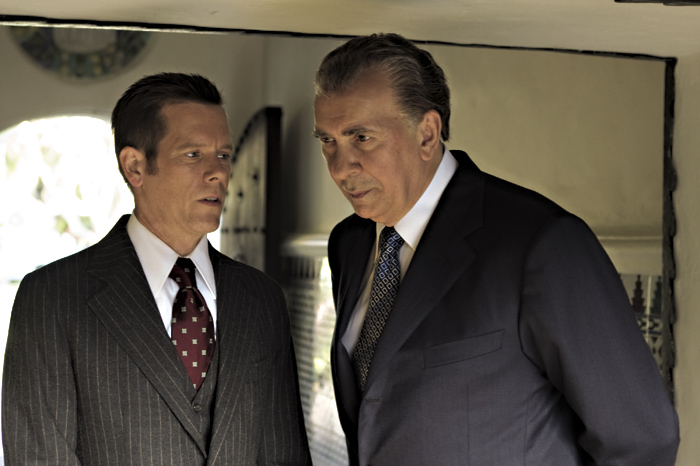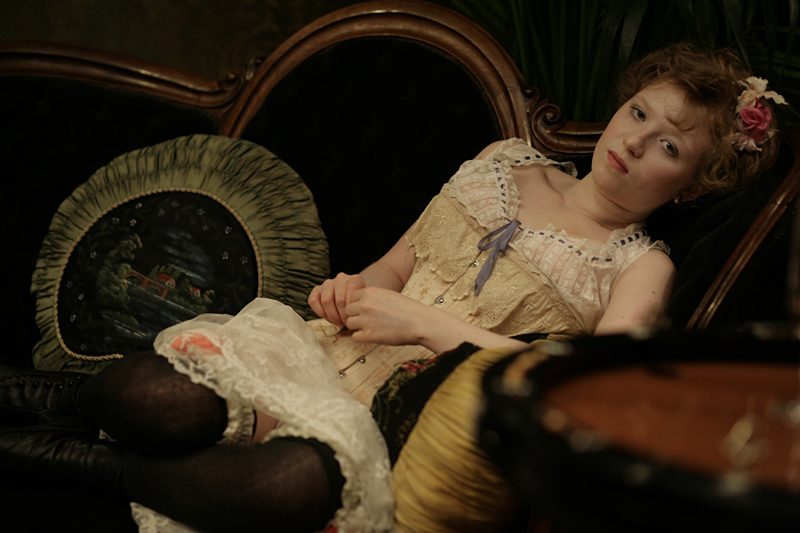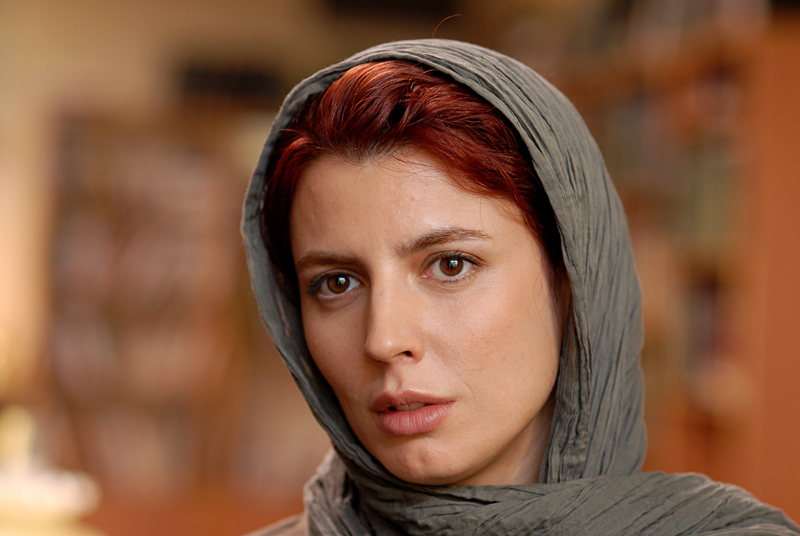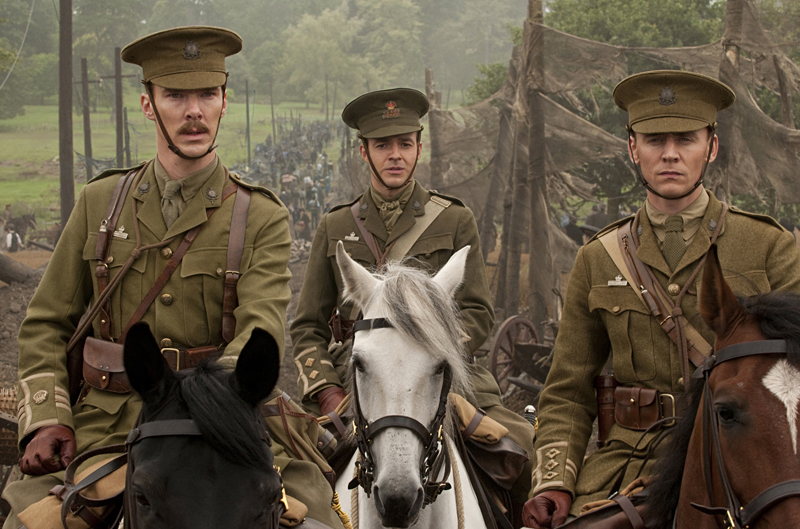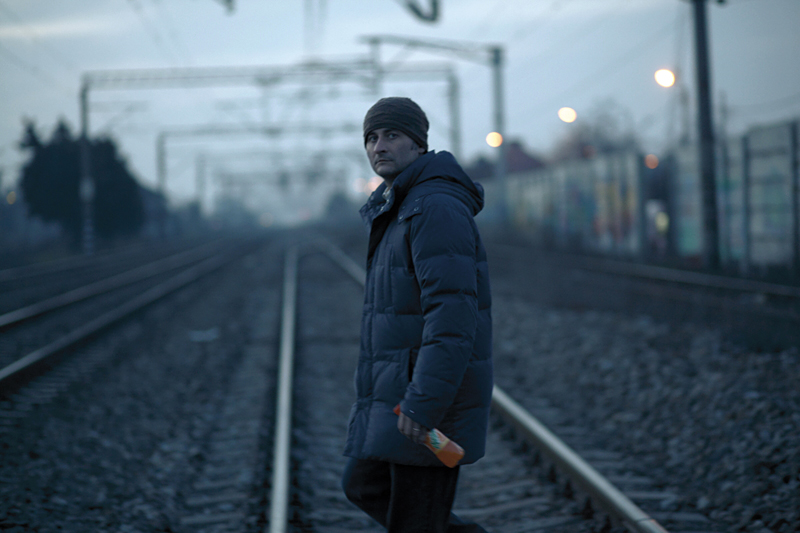I hear America singing and I see… Richard Nixon. Not the man but the muse: Has any president since Lincoln inspired more movies, TV miniseries, and operas? As Nixon’s beetle brows, ski nose, and mirthless grin were made for caricature, so his rampant pathology was a gift to novelists and psycho-historians. Frost/Nixon, dutifully directed by Ron Howard from screenwriter Peter Morgan’s enjoyably glib play, is the latest installment of the Nixoniad, appropriately set in a media hall of mirrors. The subject is not Watergate but its aftermath—the series of four televised interviews with the disgraced 37th president that British chat star David Frost orchestrated and syndicated in the spring of 1977, a little less than three years after Nixon’s resignation.
The interviews were the subject of intense interest even before they happened. The media hyped itself. The details of the deal, including Nixon’s $600,000 payday, were breathlessly reported. Mike Wallace created an anticipatory meta-event by interviewing interviewer Frost on 60 Minutes; the event itself rated the cover of TV Guide as well as Time. Devoted largely to Watergate and including what was taken to be Nixon’s apology, the first interview was among the top shows of 1977, attracting 45 million viewers. The mimic David Frye, then known as the world’s greatest Nixon impersonator, modified his act—restaging the interview and taking both parts. Frost and Nixon each produced follow-up bestsellers, with Frost’s behind-the-scenes account, I Gave Them a Sword, serving as the basis for Morgan’s 2006 play, a hit first in London and then New York.
A docudramatist whose screen credits include The Queen and The Last King of Scotland, Morgan conceived the Frost-Nixon interviews as a prizefight between two comeback-hungry veterans, only one of whom could win. Ever-cheerful Frost (Michael Sheen, wide-eyed and so coiffed as to be a distraction) meets sonorous, gloomy Nixon (Frank Langella) for the equivalent of the pre-bout weigh-in. The former president is immune to Frost’s preternatural perkiness even as he peppers the air with misfired jokes. Chronology is tweaked to give events a sports-match tension. As soon as the cameras roll, Frost takes a wild swing—asking why Nixon didn’t just destroy the incriminating tapes—and opens himself up to a bludgeoning counterattack.
Round 1 ends with Nixon running out the clock as Frost is forced to spend his downtime dashing from sponsor to sponsor, trying to line up ads. In Round 2, Frost attempts to ambush Nixon by surprising him with actual atrocity footage of his Cambodian invasion. Nixon ducks this roundhouse and leaves Frost hugging the ropes. It’s all pretty lugubrious until the big invented scene, in which the former president places a drunken call to Frost’s hotel room, seeking a measure of class solidarity: “Did the snobs look down on you, too?”
Howard has beefed up the supporting roles—Kevin Bacon plays Nixon’s aide, Oliver Platt and Sam Rockwell are Frost’s researchers, and Rebecca Hall has the decorative role of Frost’s mistress. In opening up the play, however, the movie unavoidably dissipates its power. Having Nixon’s actual lair, the so-called Casa Pacifica, as a location is considerably less compelling than the stripped-down onstage set, in which Langella and Sheen compete not just with each other but with their giant, multiplied video images.
Of course Frost/Nixon does provide a certain bitter pleasure, appearing as George W. Bush slips into ignominy. In the season’s current scholarly Nixonalysis, Reinventing Richard Nixon, Daniel Frick describes Frost/Nixon‘s Broadway audience chuckling as Langella delivers Nixon’s sound-bite justification for his abuse of power (“When the President does it, that means it’s not illegal”), but reserving true merriment for the follow-up line (“But I realize that no one else shares that view”), as if to acknowledge that the current White House occupant does share Nixon’s view and had gone him one better.
Still, Frost/Nixon‘s main attraction is neither its topicality nor its historical value, but Langella’s recreation of his Tony-winning performance. Anthony Hopkins was even stiffer than the man himself (in Oliver Stone’s 1995 Nixon). Langella brings something else to the role: He doesn’t shake his jowls or attempt Nixon’s sickly smile. Ice-cold and physically imposing, the actor is a naturally menacing presence; his stooped, shambling, eye-rolling Nixon is like a prehistoric beast at bay. Howard follows Nixon’s confession (“I brought myself down—I gave them a sword”) with the show-stopping image of the stricken leader absurdly pausing to pet a fan’s doggy on his way to the limo of oblivion.
In this, Langella captures something of the 1977 Nixon. As New York Times columnist Anthony Lewis wrote at the time, “the first Frost interview made this dreadful creature seem pathetic.” In his 1970 speech on Cambodia, Nixon had warned that America would become “a pitiful helpless giant.” Langella’s performance is the lament of a man who became what he beheld.
